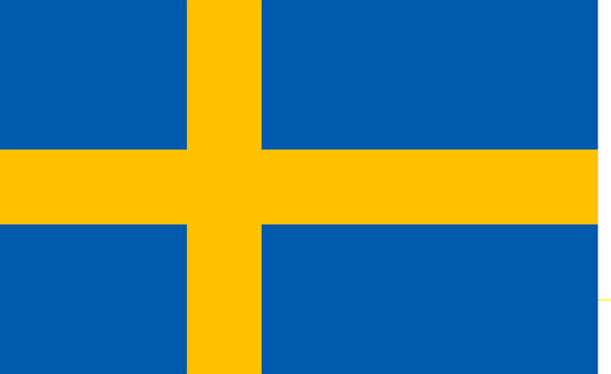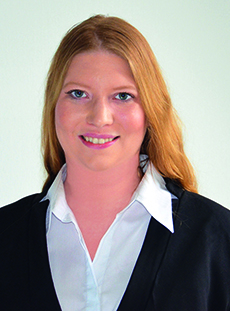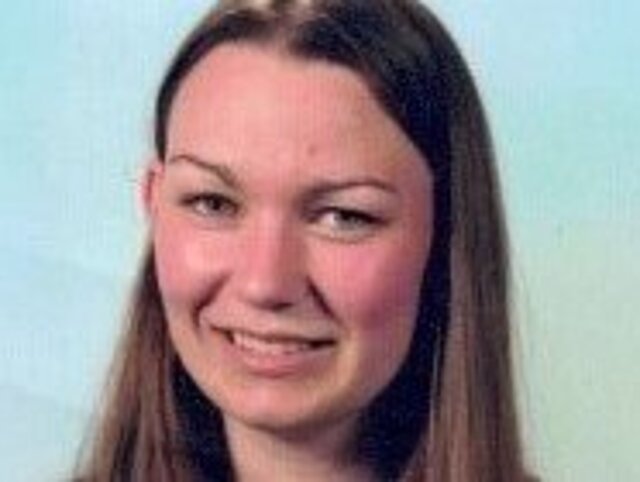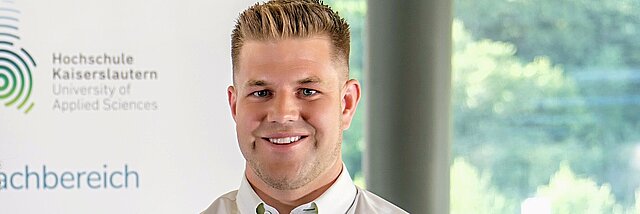Expand your kowledge and skills in the field of Mechanical Engineering / Mechatronics in an international and innovative environment.
Master of Mechanical Engineering/Mechatronics
Special features of the degree course:
- Project-based learning
- Application-oriented or research-oriented profile
- Innovative structure: compulsory elective modules only
- Individual selection of modules
- Interdisciplinary by joint teaching conducted by up to three professors per module
- Flexible start dates: in either October or March
- International
- Three semesters
- Flexible study models: part-time, dual and part-time studies alongside a job possible
- No tuition fees if this is your first master's degree course
- Gain team and work experience
At a Glance
Degree
Master of Science
Type of Program
Consecutive Master's Degree Programme, On-Campus Studies
Study Model
Full-Time Studies
Cooperative studies or part-time studies possible
Campus
Kaiserslautern
Faculty
Applied Engineering Sciences
Study Period
3 Semester
Start
Summer semester or winter semester
Language
German and English

‘The international Master's degree programme in Mechanical Engineering/Mechatronics at Kaiserslautern University of Applied Sciences offers the ideal qualification for your future career. You will work and research in projects and state-of-the-art laboratories to develop innovative solutions. We offer project-based and individualised learning for all study models and facilitate a double degree.’
Prof. Dr.-Ing. Heiko Heß
The Master's degree programme is international. The majority of the modules is offered in English. Other modules are offered in German. You can therefore complete the programme entirely in English or in a combination of English and German.
The structure of the Master's programme reflects our view that no one can decide better than you what will complete your profile. This is why there are no compulsory modules on the programme, only compulsory elective modules. You choose 60 ECTS individually from the available module catalogue of both English-language and German-language modules. As a rule, the modules are structured with a standardised scope of 10 ECTS in such a way that all the desired learning outcomes (apart from the specialist content) result from each individual module - in different forms and characteristics. Since the competences are achieved in different forms in each module, it is ensured that each combination of the individually selectable modules leads to the achievement of the overall objective of the degree programme.
The Master's thesis (30 ECTS) completes your Master's degree programme. This degree programme is generally application-oriented. However, it can also be completed as a research-oriented programme if at least 30 ECTS have been earned in R&D modules and the Master's thesis is research-oriented. The research orientation is indicated on your Master's examination certificate.
In accordance with the module catalogue, each module is assigned a number ‘ME’ for mechanical engineering and ‘MT’ for mechatronics. The highest sum of the numbers of all selected modules determines the specialisation on the degree certificate: either ‘Mechanical Engineering’ or ‘Mechatronics’.
The degree programme places a strong emphasis on the networking of different disciplines. This is supported by the fact that the modules have an interdisciplinary structure, i.e. up to three professors generally teach each module. The lecturers can work alternately or simultaneously. Ideally, this results in a combination of different course units.
Structure
The Master's degree programme consists of three semesters of 30 ECTS credits each for full-time students and up to a maximum of seven semesters for part-time students. One ECTS point corresponds to a workload of 30 hours of attendance and self-study.
When applying for admission, you select your individual compulsory elective modules from the current programme. The binding registration or de-registrationof your modules will take place within the first two weeks of lectures. Each module of 10 ECTS (300 working hours) usually includes attendance courses totalling 6 semester hours per week (SWS). The remaining time is dedicated to self-study. The final part of the programme is the Master's thesis with 30 ECTS. To give you the opportunity to choose more than three modules from one semester (winter or summer), it is possible to start the Master's thesis after you have completed 30 ECTS.
Modules
The range of compulsory elective modules (WS 24/25, SS 25, WS 25/26) offered is usually determined three semesters in advance. For an explanation of the allocation figures, please see "Subject area / allocation figures" below.
You can find a detailed module description here
R&D Module
R&D modules (basic module with 10 ECTS, advanced module with 20 or 30 ECTS) can be taken by arrangement. A maximum of 40 ECTS can be chosen for R&D modules. Only one R&D module can be taken per semester. The prerequisite for choosing an advanced R&D module of 20 or 30 ECTS is the successful completion of the basic R&D module (10 ECTS). Together with the Master's thesis, this results in up to 70 ECTS of individually definable R&D activities of a total of 90 ECTS in the degree programme. There are two options:
- You have already worked on (e.g. in your company) a problem solving task and would like to have this work recognised as an R&D module.
- You do not have a specific topic in mind, but are interested in completing an R&D module in a certain field.
You can communicate your ideas on this without obligation when submitting your application for admission. However, as approval can only be granted later, it is strongly advisable to specify an alternative module in the application for admission. The binding registration and deregistration of your R&D module takes place in the first two weeks of lectures.
Application-oriented or research-oriented profile
The degree programme is generally application-oriented. You can graduate with a research-oriented profile if more than 30 ECTS credits are earned in R&D modules and the Master's thesis is also research-oriented. The research-oriented profile is shown on your Master's examination certificate.
The content of the R&D module(s) and Master's thesis should complement one another.
Mobility Module
From the second semester onwards, upon individual approval, you have the option to complete a mobility module for a trimester or semester (20 / 30 ECTS) at a university abroad, as an alternative to the existing range of modules offered. You can find information on our partner universities at the International Office website. You also have the option to complete a mobility module at a university that is not partnered with us. The head of the mobility module,Prof. Dr.-Ing. Victor López López, will be pleased to advise you on your options. The board of examiners decides on the module codes based on the courses chosen.
You can include your plans for a mobility module in the application for admission. As you will only be accepted to a module once your studies have begun, it is strongly advised that you provide an alternative module choice in your application for admission.
Specialisation / Allocation Figures
According to the module catalogue, each module is assigned an allocation number ‘ME’ and ‘MT’. The highest sum of the assignment numbers of all completed modules determines which specialisation is shown on your certificate: ‘Mechanical Engineering’ or ‘Mechatronics’.
Language of Instruction
Most modules are offered in English. These modules have an English title. Modules with a German title are offered in German language. Thus, you can complete your degree entirely in English or with a combination of the two languages. Students who speak both languages will be able to choose from a wider selection.
Course Start
You can begin the degree course either in the winter semester (group lectures starting from early October, running until the end of January) or in the summer semester (group lectures starting from mid-March, running until end of June).
Entry Requirements
Bachelor’s degree (210 ECTS or 7 semesters) with good average grades (2.8 or better in the German grading system) in
- Mechanical Engineering
- Mechatronics
- Industrial Engineering with a focus on Mechanical Engineering
- Or a comparable professional qualification (not in the subjects of Electrical Engineering, IT, or Informatics; it must be related to Mechanical Engineering)
The Examination Board may admit applicants who have fewer than 210 ECTS, but at least 180 ECTS, subject to certain conditions. The conditions can for example be fulfilled by the recognition of additional Bachelor's modules, extra-curricular studies abroad, relevant professional experience after the Bachelor's degree or the successful completion of modules from Bachelor's degree programmes at Kaiserslautern University of Applied Sciences.
The Examination Board will inform the admitted student of the requirements in writing before the start of the Master's programme. The requirements can be fulfilled before or during the study of the Master's modules. All requirements must be fulfilled by the time the Master's thesis is registered at the latest.
All applicants whose native language is not German require German language skills of at least level A2 according to the Common European Framework of Reference for Languages (CEFR) for admission to the degree programme at the time of application. This also applies to applicants who only choose English-language modules.
- Applicants whose native language is not English require good English skills at B2 level, TOEIC Listening and Reading 785, TOEIC Speaking and Writing 310; TOEFL iBT 87, TOEFL ITP 543, IELTS 6.0, Languagecert (min. 60 points) or equivalent.
- Applicants for modules taught in German whose native language is not German require good German skills at B2, TestDaF -3, or DSH-1 level, or equivalent.
Applicants must submit a certificate from a recognised language examination that is no older than 24 months.
- Applicants with a Bachelor’s degree completed in India require an additional 3 years of professional experience and a degree “first class with distinction”. There have been students with a Bachelor's degree from India enrolled in the degree course since the start of the programme. Students from India form the largest group of foreign students and make a valuable contribution to campus life and to lectures. However, the large number of applications from India and past experience have shown that it is necessary for us to refine the entry requirements. With this refinement, we want to bring applications and admissions closer together and avoid disappointing many motivated and enthusiastic applicants. Studying in an international environment requires that nationalities, languages, genders etc. are well mixed. If we receive as many applications from any country other than India in the future, we will of course also apply adjusted admission requirements for these countries. This measure was expressly not taken to discredit the quality of our applicants from India. Like all our students, they are highly valued and very welcome. We appreciate your understanding.
Evaluation of Applications
Applications will be assessed in December and January for the summer semester and in June and July for the winter semester. The assessment is based on your professional (certificates, relevant, good professional knowledge and skills) and personal skills. Personal aptitude should be demonstrated by a clear interest in the Master's degree programme in Mechanical Engineering/Mechatronics, a correspondingly high level of motivation and particular commitment and must be shown by a written description of your personal and professional background (e.g. by describing internships, work experience or studies abroad, professional or practical experience) and the reasons for the intended admission to the degree programme and the goals pursued (CV, letter of motivation).
Application Process and Application for Admission
Applications can only be submitted using an online application process, and after completing the online application, you must submit the relevant documents by mail (application for admission, letter of motivation, certificates, résumé, etc.).
Application deadline: 31 May for the winter semester; 1 December for the summer semester. Only complete applications will be considered. Late submissions will not be accepted.
Read the admission guidelines carefully before filling in the application form. They explain what you should pay attention to when filling in the form and what significance the information you provide has for the admission process.
Central Student Administration Office | Tel.: +49 (0)631 / 3724-2270
Tuition Fees
Usually there are no tuition fees. However, you must pay tuition fees if this is your second degree (if you already have a Diploma or Master's Degree). In these cases, tuition fees of €700.00 per semester will be charged in addition to the semester fee.
Scholarships
Many scholarships are awarded annually through the International Office. These include travel and residence scholarships for outgoing students, scholarships for foreign guest students and other DAAD scholarships. The prerequisite for applying for these scholarships is that you are already enrolled at Kaiserslautern University of Applied Sciences and have successfully completed at least 30 ECTS with us.
Date | what happens? |
|---|---|
| End of calendar week 3 | End of lectures |
End of February | End of exams / presentations |
1 March | Start of the summer semester |
Calendar week 12 | Start of lectures |
Calender Week 12 and 13 | Closing date for registration or de-registration of compulsory elective and R&D modules |
31 May | Application closes for the winter semester |
Calendar week 25 | End of lectures |
31 August | End of exams / presentations |
1 September | Start of the winter semester |
Calender week 40 | Start of lectures |
Calender week 40 and 41 | Closing date for registration or de-registration of compulsory elective and R&D modules |
1 December | Application closes for the summer semester |

A stay abroad at Högskolan Väst (University West) in Trollhättan (Sweden) allows you to obtain a double degree under specific conditions. University West then awards an M. Sc. in Mechanical Engineering and Kaiserslautern University of Applied Sciences an M. Sc. in Mechanical Engineering or Mechatronics.
The stay abroad at the University West usually takes place in the 2nd semester as part of a 30 ECTS mobility module. Modules from the fields of Manufacturing Engineering / Metal Additive Manufacturing and Robotics and Automation can be selected at University West, see fact sheet. The study conditions at University West and the laboratory facilities are excellent.
The Master's thesis including colloquium (30 ECTS) is supervised and assessed by one assessor from Kaiserslautern University of Applied Sciences and one from University West.
There is a 60-ECTS and a 120-ECTS Master's programme at the University West. If you acquire 60 ECTS in the mobility module and the jointly supervised Master's thesis as described above, a Swedish Master's degree is awarded (60-ECTS Master's programme). At the University West, however, an additional 30 ECTS can be acquired in attendance or online in order to obtain the Swedish Master's degree. In both cases, the M. Sc. in Mechanical Engineering is awarded by Kaiserslautern University of Applied Sciences. There are no tuition fees for EU citizens.
Contact:
Hochschule Kaiserslautern
- Mobility Module: Prof. Dr.-Ing. Victor López López, victor.lopez(at)hs-kl(dot)de
- Double Degree: Prof. Dr.-Ing. M. Magin, michael.magin(at)hs-kl(dot)de
University West
- Double Degree: Prof. Dr. Hanna Aknouche-Martinsson hanna.aknouche-martinsson(at)hv(dot)se
Questions concerning your studies?

Studiengangsleitung "Maschinenbau / Mechatronik, Master", Vorsitz Prüfungsausschuss: "Elektrotechnik und Informationstechnik, Master" "Maschinenbau / Mechatronik, Master" "Master Elektrotechnik berufsbegleitend, Master" "Master Prozesstechnik berufsbegleitend, Master", Prüfungsausschuss AING Master

Dekanat FB AING, Dekanatsassistentin, Prüfungsausschuss AING Bachelor, Prüfungsausschuss AING Master




